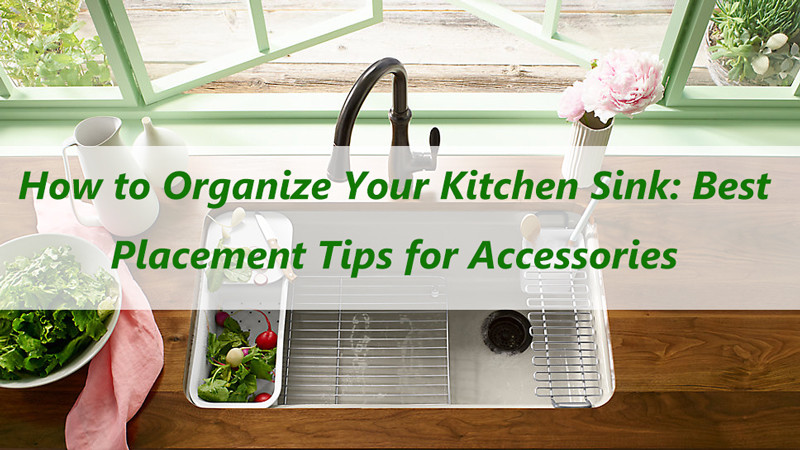
The kitchen sink area is often the central hub of activity in any home, and optimizing this space is essential for both functionality and aesthetics. The right placement of accessories can significantly enhance your workflow, keeping the sink area organized and efficient. In this post, we’ll guide you through the best practices for positioning kitchen sink accessories to maximize usability, maintain cleanliness, and ensure a clutter-free environment.
How to Organize Your Kitchen Sink
1. Soap Dispenser
A soap dispenser is one of the most frequently used kitchen sink accessories. Whether integrated into the sink itself or as a standalone fixture, it is vital to ensure that it’s conveniently located without taking up too much counter space.
Best Placement:
- Built-in Soap Dispenser: If your sink has a built-in soap dispenser, ensure it is positioned close to the faucet to allow easy access while washing dishes. Usually, placing it on the right or left side of the faucet ensures optimal reach for users, particularly if you’re right- or left-handed.
- Standalone Dispenser: For a standalone option, place it on the countertop near the sink, but be mindful of positioning it where it won’t clutter the workspace or block drawers. Many homeowners prefer placing it at the back corner of the sink area, where it remains accessible but out of the way.
2. Sink Caddy
A sink caddy can hold sponges, brushes, and scrubbing pads, reducing countertop clutter and ensuring your cleaning tools are always within reach.
Best Placement:
- In-Sink Caddy: Many caddies are designed to fit inside the sink. If you opt for this, consider a position that won’t interfere with washing large dishes or obstruct the sink drain. Placing the caddy in the back corner of the sink or hanging it on the divider in double sinks is ideal.
- Countertop Caddy: If you prefer a countertop version, situate it on the back or side of the sink, preferably near the soap dispenser. It should be placed where water splashes are minimized to keep the countertop dry.
3. Dish Drying Rack
A dish drying rack is a staple for many kitchens, and its placement can significantly impact the efficiency of dishwashing tasks.
Best Placement:
- Over-the-Sink Rack: Over-the-sink drying racks are excellent space savers, allowing you to drain dishes directly into the sink without using countertop space. Ensure that it fits well across your sink without obstructing the faucet or food preparation area.
- Countertop Dish Rack: If you prefer a countertop rack, place it on the side of the sink where it can drain water directly into the sink basin. To minimize clutter, choose a compact design and position it close enough to the sink to avoid water spillage on the countertop.
4. Garbage Disposal Switch
Garbage disposals are convenient for waste management, but their efficiency can be enhanced with the correct placement of the switch.
Best Placement:
- Wall-Mounted Switch: If the switch is wall-mounted, ensure it’s installed in a position where you can reach it easily while working at the sink. It should be within arm’s reach but placed far enough from the sink to prevent accidental activation or water damage.
- Air Switch: For air switches (which are often mounted on the countertop), place them in the corner of the counter near the faucet. This placement ensures easy access without compromising countertop space.
5. Pull-Out Trash Can
A pull-out trash can located under the sink is an efficient way to manage waste without taking up floor space. This option helps keep the kitchen clean and minimizes odors.
Best Placement:
- Under Sink Cabinet: The most common location for a pull-out trash can is directly below the sink in the under-sink cabinet. This placement makes it easy to scrape food waste off dishes before washing them, ensuring quick and efficient cleanup. Ensure that the trash can is easy to pull out and fits comfortably alongside plumbing pipes.
6. Water Filtration System
A water filtration system provides clean, filtered water for drinking and cooking, and positioning it correctly ensures ease of use.
Best Placement:
- Integrated Faucet: If you have a filtration system with an integrated faucet, it’s usually installed directly onto the sink. Ensure it’s located on the side that provides easy access without interfering with other sink activities. The right or left side of the main faucet is typically ideal, depending on your kitchen layout and handedness.
- Under-Sink System: For under-sink filtration systems, the faucet can be mounted on the countertop near the main sink faucet. Ensure there’s enough space between the two faucets to avoid congestion, but close enough for practical use.
7. Cutting Board
Many modern kitchen sinks come with accessories like a built-in or over-the-sink cutting board, which can save counter space and streamline food preparation.
Best Placement:
- Over-the-Sink Cutting Board: This type of cutting board fits directly over the sink, allowing you to chop ingredients and easily push food waste into the disposal. Ensure it fits snugly over the sink, and store it nearby when not in use for easy access.
- Separate Cutting Board: If you use a separate cutting board, store it in a drawer near the sink. This allows for easy retrieval and maximizes counter space during meal preparation.
8. Faucet with Pull-Down Sprayer
A faucet with a pull-down sprayer is a convenient accessory that allows you to direct water exactly where it’s needed for cleaning and rinsing.
Best Placement:
- Center of the Sink: For maximum flexibility, ensure the faucet is positioned in the center of the sink, allowing the sprayer to reach all areas of the basin. The sprayer should be easy to pull out and retract without catching on anything underneath the sink.
9. Colander and Strainer
An over-the-sink colander or strainer is another useful accessory that makes it easier to wash fruits, vegetables, and drain pasta without taking up additional space.
Best Placement:
- Over-the-Sink: Colanders or strainers should be positioned to rest securely over the sink. This accessory is best placed at the rear or sides of the sink, leaving room for other tasks while in use. For easy access, store it near the sink or on a hook on the inside of the cabinet door.
10. Under-Sink Storage
Finally, under-sink storage is crucial for keeping cleaning supplies, extra sponges, and other essentials organized and accessible.
Best Placement:
- Within Reach: Use stackable bins or shelving units under the sink to store items. Keep frequently used supplies, such as dish soap or cleaning sprays, in the front for easy access.
In conclusion, thoughtful placement of kitchen sink accessories can greatly enhance your kitchen’s efficiency and organization. By carefully considering where to position each accessory, you can create a sink area that supports smooth workflows, maximizes available space, and maintains a clutter-free, visually appealing environment. Whether you’re planning a new kitchen design or reorganizing an existing one, these tips can help you achieve a more functional and enjoyable kitchen experience.
 WOWOW Faucets
WOWOW Faucets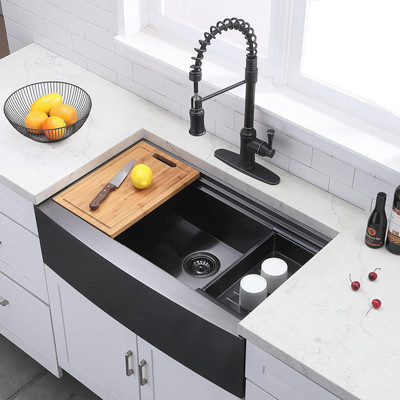
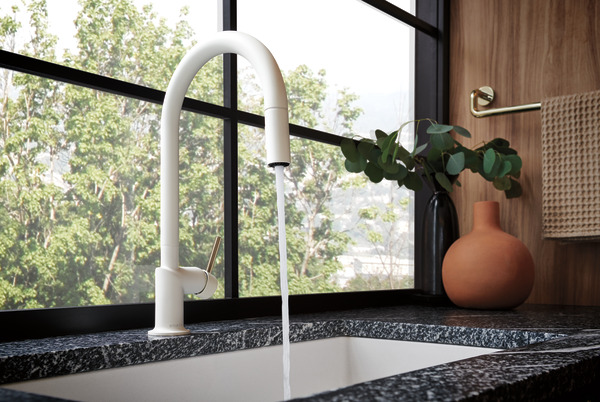
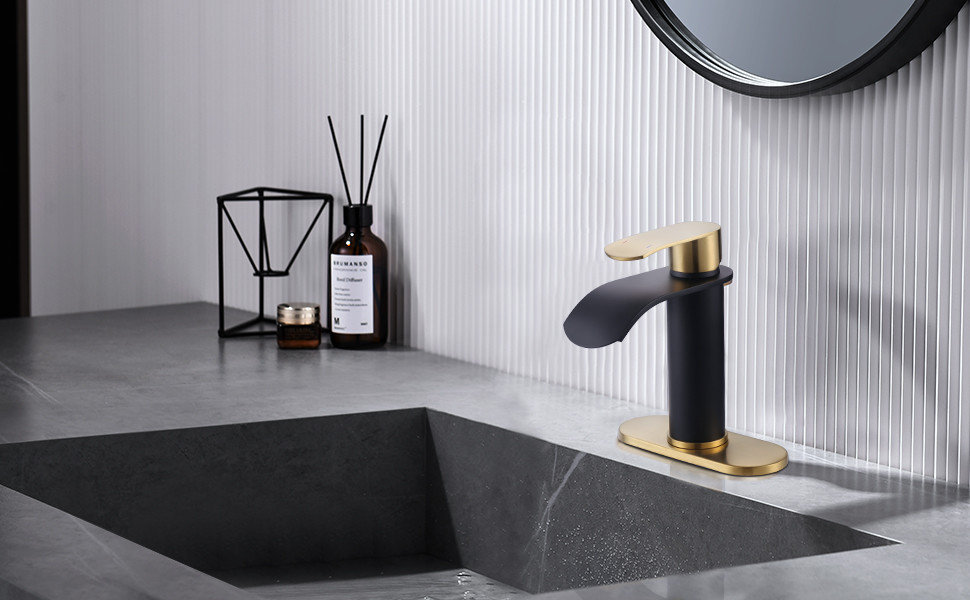

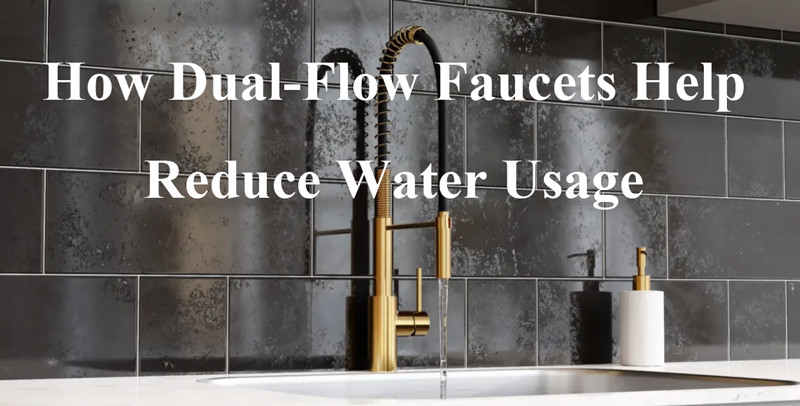


您好!Please sign in